Search Images
Browse Content (p. 1311)
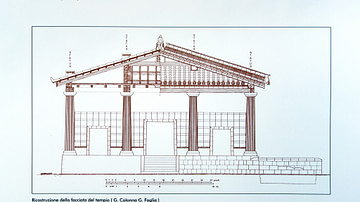
Image
Etruscan Temple Diagram
A reconstruction of a typical 6th century BCE Etruscan temple such as the Portonaccio Temple at Veii, central Italy.
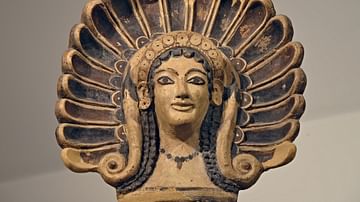
Image
Etruscan Maenad Roof Tile
A decorative end roof tile in the form of a maenad from the Etruscan Portonaccio Temple at Veii, central Italy. 510 BCE. (National Etruscan Museum of Villa Giulia, Rome)
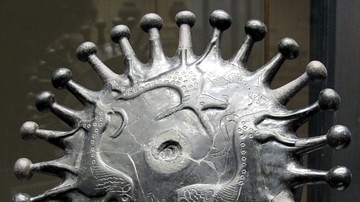
Image
Bucchero Box with Ram & Bull Decoration
A bucchero ware box with ram and bull decoration. Etruscan, 4th century BCE. (Museo Gregoriano Etrusco, Vatican Museums, Rome)

Image
Bucchero Krater
A bucchero mixing bowl or krater. Etruscan, 550 BCE. Height: 27 cm. The rim is decorated with six female heads while the main body has lions and sirens. (Metropolitan Museum of art, New York)
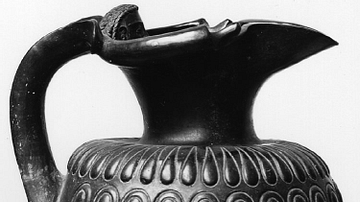
Image
Bucchero Jug
A bucchero jug or oinochoe. Etruscan, 580-560 BCE. From Tarquinia, central Italy. Height: 40 cm. (British Museum, London)
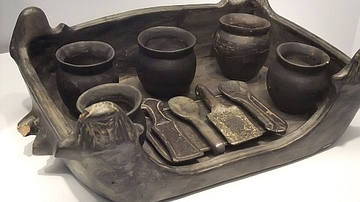
Image
Bucchero Dinner Set
A dinner serving set in bucchero ware. Etruscan from Chiusi, Italy. 550-500 BCE (Art Institute of Chicago)
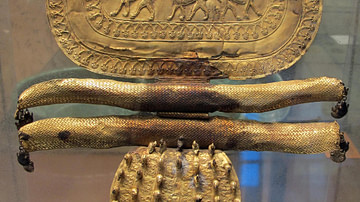
Image
Etruscan Gold Fibula, Cerveteri
A gold fibula decorated with five lions (upper portion) and 50 ducks (lower portion) from the Etruscan Regoliini-Galassi Tomb at Cerveteri. 7th century BCE. (Museo Gregoriano Etrusco, Vatican Museums, Rome)
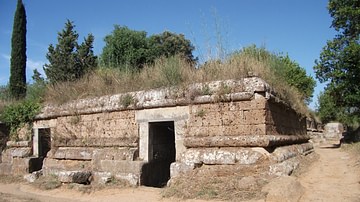
Image
Etruscan Square Tomb, Cerveteri
An example of the square stone tombs at the cemetery of Banditaccia at the Etruscan site of Cerveteri. The tombs were laid out in rows with streets between them. Mid-6th century BCE.
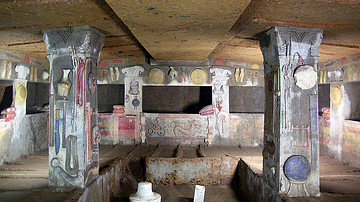
Image
Tomb of the Reliefs, Cerveteri
The Tomb of the Reliefs at the Etruscan site of Cerveteri. Last quarter, 4th century BCE.
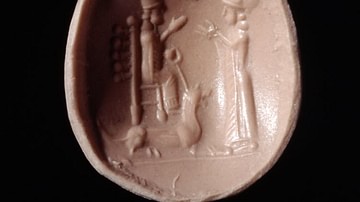
Image
Gula
Impression of a Babylonian blue chalcedony conical stamp seal from c. 700-550 BCE. On the base, beneath a crescent, a worshipper in a fringed robe stands facing the goddess of healing, Gula, who sits on her star-studded throne which rests...